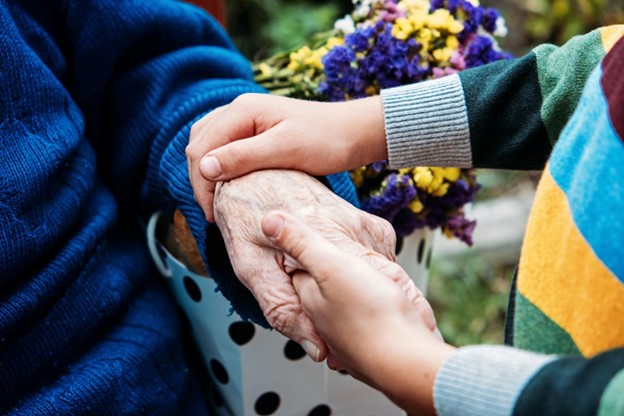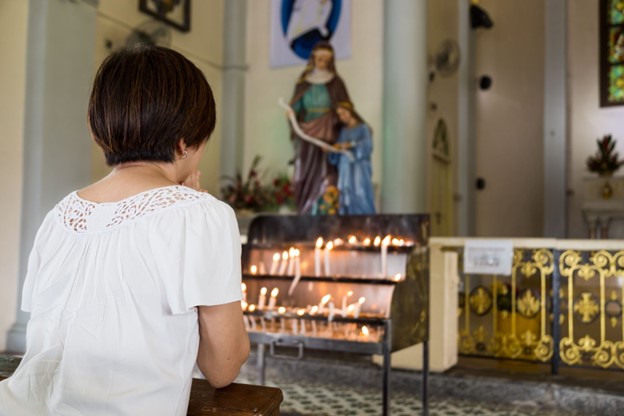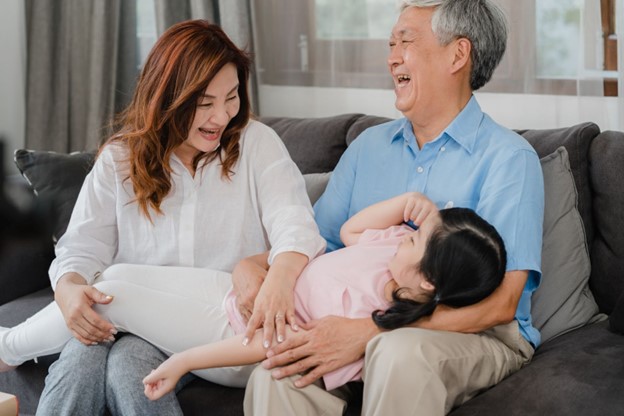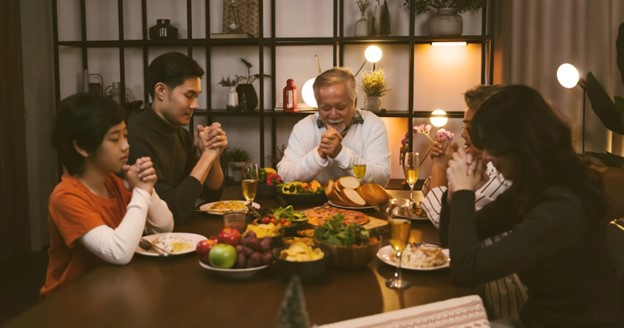Values are an integral part of one’s life. Our basic beliefs are what motivate our attitude and actions, the way we react to or handle things or circumstances that come our way. Values serve as the manual that guides our actions towards ourselves and our interactions with the world around us. In short, a person’s behavior originates from their personal values.
Filipinos share common core values rooted in our ancestral traditions and a long history of foreign influences and colonization. These values create the expectations that each of us has for our fellowmen.
However, traditional Filipino values are slowly disappearing as time goes by. A new set of beliefs and practices are taking over our homes, creating a gap between the old and the young.

Even if our lifestyle changes and many old beliefs have been shed off and left behind, it’s important that we don’t lose those fundamental values that define us Filipinos.
These are the 19 great values that should be taught at home and put into practice by every Filipino.
1. Pagmamano

The word “mano” is Spanish for “hand.” This is usually performed by bowing down in front of the elderly, taking their hands, and pressing them into your forehead. The person doing the mano usually says the word “mano po”, which can be interpreted as “can I have your blessing?” Pagmamano is done when entering someone’s home where an elderly person resides.
“Mano” or “pagmamano” is part of the Filipino culture of giving respect. It is a gesture to show honor to the family’s elderly, usually the grandparents and older visitors or hosts. Mano is also a way of requesting a blessing from the elders. The act shows that you respect and recognize their elders for their acquired wisdom and age.
The practice of pagmamano is now becoming less common in the Philippines. In modern times, a simple greeting or small bow of recognition has become sufficient for greeting. However, it’s important to revive this action because it teaches children the importance of recognizing people who are older and more experienced than they are. By doing the mano, they become subservient to their elders.
2. Paggamit ng “po” at “opo”

Other than gestures like mano, Filipinos show their respect to the elderly through their words. The word “opo” translates to “yes” in a more respectful way. Meanwhile, “po” is a word you interject into almost any sentence to sound more polite. For example, when you say “thank you,” you can say “thank you, po.”
Like in other Asian countries, Filipinos are very particular about how you address the elderly. Anyone older than you should be addressed properly. The use of the words “po” and “opo” shows you are giving high regard to a person’s status and that you respect them.
Filipinos are still practicing the use of these words. But, the younger ones slowly forget the use of po and opo. It will be good to adapt the practice of using these again. It will make your elderly happy that you’re showing them respect by the way you speak to them and that you’re courteous.
3. May mainit na pakikitungo

Filipinos are known to be naturally hospitable. It is by far one of the most famous Filipino values that foreigners and locals alike praise a lot. When guests visit Filipino homes, they are expected to receive a warm welcome from the house owners. No matter their social status, a family will always welcome people into their homes and give them something to drink and eat.
The Filipinos are amazing hosts and very generous to their visitors, regardless of race and their ties to the family. Some would even let people stay in their homes for the night. Whoever it is, they are treated warmly, like part of the family.
These traits didn’t go away because they’re still practiced today. The value of hospitality must remain as it defines Filipinos and the country of the Philippines.
4. Pakikipagbayanihan

The Bayanihan or kinship system represents the Filipino’s community spirit and camaraderie. Bayanihan is where a group of individuals extends help without asking for anything in return. It’s been a long-standing tradition of the Filipinos.
The concept of bayanihan encapsulates all the goodness of the Filipinos. We love our nation, and we will support our countrymen in times of need. During natural calamities, people would come together and give their donations to the victims, even for simple things like offering their services to push a jeepney in the street.
However, because of the growing economic problem, people are shifting their focus to their own needs alone. It’s essential that we understand that bayanihan is more critical now than ever. By coming together, we can do so much more as a nation.
5. May matibay na ugnayan sa pamilya

“Family comes first.” In the Philippines, it does not end with the nuclear family. Family gatherings would be composed of the main family, the extended family, and even those with weak blood ties. It doesn’t matter; you are considered a family if you have that tiniest blood connection.
Filipinos are tied to their families. Even if they did something wrong, you have to treat them properly, and when someone goes sick, you need to take care of them. Families support each other through ups and downs, and they stay under one roof, even if the space is too crowded.
In modern times, the concept of cutting ties with the family has become more common. While there are valid reasons for this, we shouldn’t simply toss them aside like they mean nothing. Try to compromise or explore alternatives so that you can remain civil and not break off the family.
6. Maka-diyos

Filipinos are “maka-diyos” or religious. The Philippines is a Christian country. Filipinos are God-fearing, and going to church is a normal Sunday routine. A huge chunk of the population follows Muslim beliefs. Whatever our religion is, our actions and words are influenced by our religious beliefs.
We celebrate huge religious gatherings and festivals. Even in schools, the day starts with a prayer and ends with a prayer. Filipinos have strong faith, and this faith directs their actions. They use that faith in times of need.
While there are existing debates on religion and faith, believing in a Supreme Being should be done by young and old alike. We have to respect the existing religion and the beliefs that they follow. Faith is what keeps Filipinos going, and it makes them strong.
7. May etika sa trabaho

Filipino workers are well-loved all over the world. Especially in the service department, many companies here and abroad request Filipinos because they are hardworking and loyal. They always deliver the best service possible with a big smile and a cheerful attitude. Filipinos are enduring and patient. They are vital in the communication department and lead amazing conversations.
These values can only be preserved if our Filipino workers receive the proper compensation for their fantastic work and service. Many workers are looking for greener pastures because of the lack of benefits and compensation. A strong work ethic comes from a satisfied employee, so it’s important to listen to their worries and requests. Without proper compensation, workers will feel unmotivated, resulting in lower quality output and service.
8. Masayahin

Filipinos are known as “masayahin”. Filipinos can smile and laugh even after a big problem passes through their lives. Filipinos find the good even during times when it’s bleak. We find happiness in good things that happen after a storm, no matter how small it is.
No, it’s not that we take things lightly. Instead, we laugh and joke around because it makes it easier to think and devise a plan to solve the problem before us. It allows us to center our focus and take control. We love humor, and smiles from people we love give us strength.
But with the number of problems that have been coming after us lately, it seems like even the surveys would agree that we are slowly losing that smile. The fun and laughter are contagious and give hope to other people. Even in the darkest of times, if one person gives you that smile, it makes you feel better.
9. Marunong magpaabot ng pakikiramay

The “damayan system” means expressing or extending sympathy. When our family or friends are in need, we come to their aid. We give our support to someone, whether it’s monetary or emotional. It’s almost the same with bayanihan, but damayan is more rooted in the emotional level.
In a community, when someone loses their loved ones, the people will show their sympathy to the bereaved family. They would attend the wake and would comfort those left behind. Others would send money to help with the expenses incurred by the family member’s death.
The concept of damayan is something that Filipinos never forget. It is based on our kinship values, and it should never vanish with time. We give strength to others and we receive it back.
10. Mahabagin

Filipinos are compassionate. It’s what we call “malasakit.” Malasakit comes because we believe that we are responsible for others as much as they are responsible for ours. If we can ease someone’s hardship and pain in any way, then we will do something.
With malasakit, we take ownership and responsibility. It goes beyond simple charity, helping with the thought that our actions and inactions can impact other people’s lives.
Malasakit is given to anyone. You don’t choose who will receive your malasakit. It’s a value that you develop from within and comes with responsibility and action. We can see this “malasakit” in times of great need when the country is in shambles. During the pandemic, those with “malasakit” started their own relief actions to help their fellow Filipinos who lost jobs and income sources.
11. Marunong makibagay

Ang mga pinoy ay magaling makibagay. Filipinos can adapt to or adjust to whatever life throws at them. An OFW can maintain a harmonious relationship with others despite their differences.
Even at work, Filipinos can make do with almost anything. They observe and learn. Filipinos simply submit their fate to the higher power and find ways to deal with what’s on hand.
The younger generation is exposed to a world where there is almost anything you can buy to solve your problem. And, we don’t have to associate ourselves with others to get something. However, it’s important to cultivate these traits because they will come in handy wherever you go someday.
12. Matiyaga

Filipinos are tenacious and don’t back down easily. When they start something, they make sure to finish it. They exhibit strong determination when facing challenges. Even if life is tough, they go on and brave the hardships in hopes that it will all be okay soon.
On their way to their goal, they hold on even if it’s tough. They don’t give up until they can finally shout their success.
The value of diligence and patience is something that Filipinos should always embody. When they are “matiyaga,” they can achieve whatever they put their mind to. As all Filipinos say, “Kung walang tiyaga, walang nilaga.”
13. May pakikisama

Filipinos prefer a harmonious environment. As much as possible, avoiding conflict with the people around them is better. We accept requests because we know that turning them down will result in other people believing that we don’t know how to get along with others.
Getting along with others is a value that Filipinos give high importance to. We love pleasing others because we know that it will help us build good relationships with others that may come in handy in the future. We join communities and circles.
With evolving trends, people now believe that we don’t have to associate ourselves with people that we don’t like. It is true as it protects you from unnecessary stress. However, you never know when you’ll need help and who can help you. You don’t want to be labeled as “hindi marunong makisama.”
14. May delicadeza

“Magkaroon ka naman ng delicadeza!”
Have you heard that line before? Having a delicadeza means that you value your reputation. When something bad or controversial happens, you expect that person to take action and prevent any further embarrassment from happening because “may delicadeza” ka.
Delicadeza is mostly used when talking about politics. Politicians are expected to act according to their position, and they shouldn’t do anything that will make people question their agenda.
The trait of delicadeza is one of those that is slowly disappearing. It’s apparent in the current political climate that we have, and it’s something that should be revived again. If you’re caught up in a scandal, it’s better to leave the position or at least take a leave of absence to avoid further conflicts and embarrassment.
15. Maka-Pilipino

“I am proud to be a Filipino, and I am happy to know that you are the same.” Filipinos are proud of their blood and are happy if someone of their own is making names and titles in a different country. They would show their support and would congratulate them.
Even if the person is only “half” blood or doesn’t have any but lived in the Philippines, they feel the same pride and joy.
But recently, many have been posting on social media that they are ashamed of their nationality and would prefer to have it changed. Joke or not, the issue remains that many people are willing to leave the country and apply for a different nationality if given the chance. We should preserve that pride we feel every time we hear our nationality, because only we can do that for our country.
16. Masipag

Filipinos were never lazy. Even when the country was colonized and they were labelled as stupid and lazy, Filipinos never stopped working. They worked from sunrise to sunset and had to sacrifice their bodies for a living.
They are willing to take on any job just to earn their keep. Filipinos are industrious, and they are prompt.
Filipino time, where people are always late for meetings, is very unfilipino-like. Filipinos are always on time. It was during the colonization that they were made to believe that they weren’t. The lateness soon carried on until now, and it has caused problems. We must break away from that chain.
17. Marangal

We value honor, and we will do anything to protect our honor. Our parents send us to school, no matter how hard life is. It is a parent’s honor to see their child succeed after doing everything they can. To protect one’s honor is to do things in high regard without any hint of corruption or tainted actions.
During these times where life is hard and you get tempted to do anything to fulfill your wish, your honor weighs heavier than ever. Protecting your honor as a Filipino living in this country is a remarkable feat.
18. Respetado

We talked about respecting the elderly, but respect in general is different. It’s easy to show respect to the elderly because you feel the need to do so. After all, it’s the right thing. But the real challenge is how well you can show respect to everyone around you.
Filipinos are respectful of those younger than them. They treat their house helpers as part of their family and try not to say anything that could hurt them. People we don’t know label us with “Ma’am” or “Sir” instead of shouting “Hoy” when calling us. This shows that even in the simplest things, we unconsciously show respect. We address people the way we want to be addressed.
Thankfully, the younger generation is keener on fighting for this “respect”. They are more open to people who identify differently from others. They are accepting, and they respect the decisions of others. They know how to set boundaries to ensure the other person won’t feel uncomfortable.
19. Marunong magpasalamat

Salamat is a powerful word. Salamat means “thank you,” and it represents the Filipinos’ value of gratitude. We say thank you for almost anything good. We feel grateful for other people’s help and always think about how we can repay their kindness.
Filipinos are so grateful that we developed the value of “utang na loob”. We have this urge to repay someone for the good deeds they have done for us. We feel indebted and that the only way to fulfill it is to pay it back.
The concept of utang na loob is often abused, leaving a negative connotation. However, Filipinos’ way of showing gratitude is truly remarkable, and it makes someone happy to receive something they didn’t expect because they helped someone.
Filipinos have so many amazing traits and values. Some of them have withstood the tests of time, while others have evolved to adapt to changing trends. The only way to preserve these great values is to teach them to others while they’re still young. The younger generation is looking bright. They may argue a lot and reason more than what you expect from their age, but it is because they are the products of the now. Teach them while they’re young, and they will carry it until the end.




